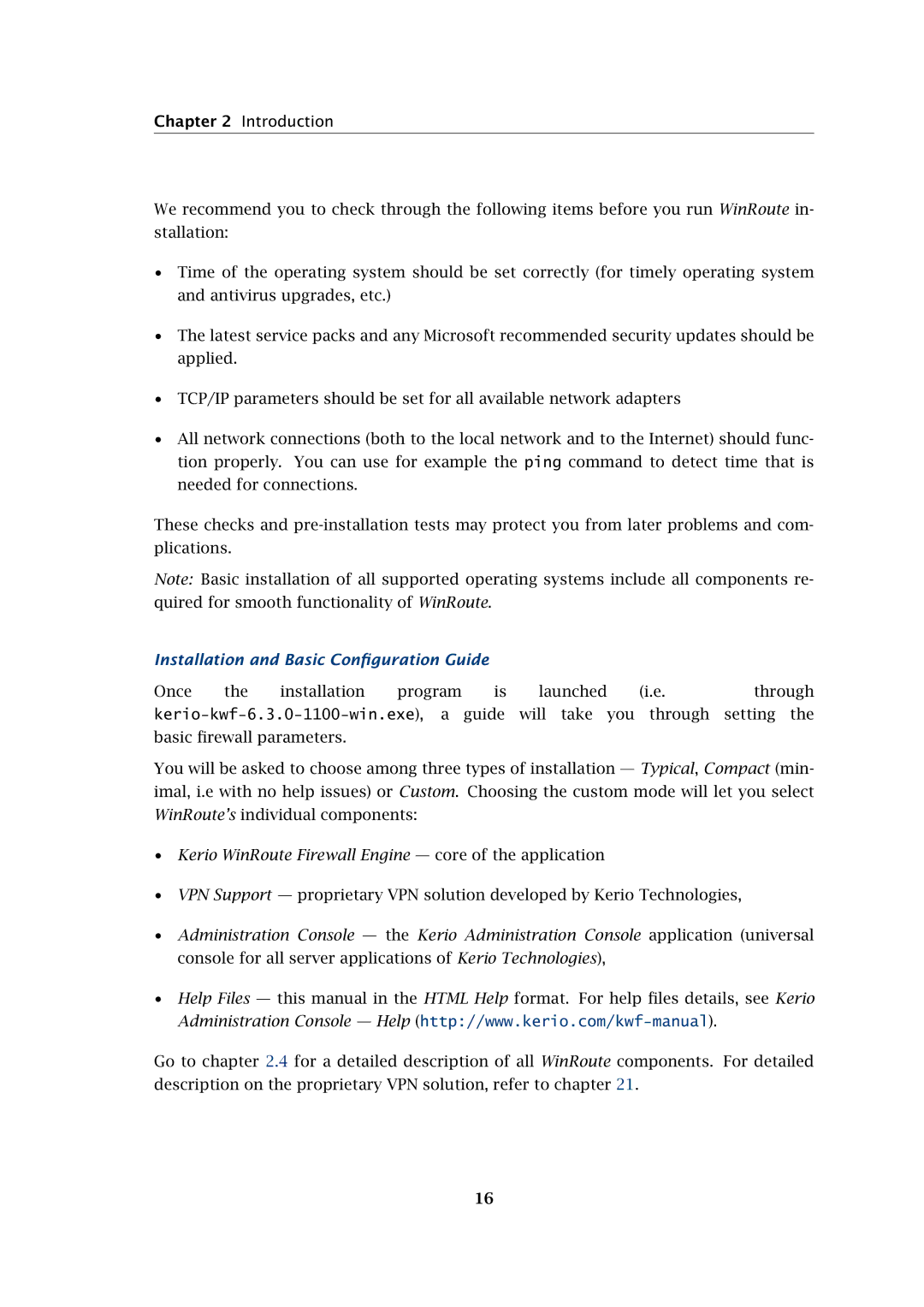Chapter 2 Introduction
We recommend you to check through the following items before you run WinRoute in- stallation:
•Time of the operating system should be set correctly (for timely operating system and antivirus upgrades, etc.)
•The latest service packs and any Microsoft recommended security updates should be applied.
•TCP/IP parameters should be set for all available network adapters
•All network connections (both to the local network and to the Internet) should func- tion properly. You can use for example the ping command to detect time that is needed for connections.
These checks and
Note: Basic installation of all supported operating systems include all components re- quired for smooth functionality of WinRoute.
Installation and Basic Configuration Guide |
|
|
|
| |||
Once | the | installation | program | is | launched | (i.e. | through |
setting the | |||||||
basic firewall parameters. |
|
|
|
|
| ||
You will be asked to choose among three types of installation — Typical, Compact (min- imal, i.e with no help issues) or Custom. Choosing the custom mode will let you select WinRoute’s individual components:
•Kerio WinRoute Firewall Engine — core of the application
•VPN Support — proprietary VPN solution developed by Kerio Technologies,
•Administration Console — the Kerio Administration Console application (universal console for all server applications of Kerio Technologies),
•Help Files — this manual in the HTML Help format. For help files details, see Kerio Administration Console — Help
Go to chapter 2.4 for a detailed description of all WinRoute components. For detailed description on the proprietary VPN solution, refer to chapter 21.
16
